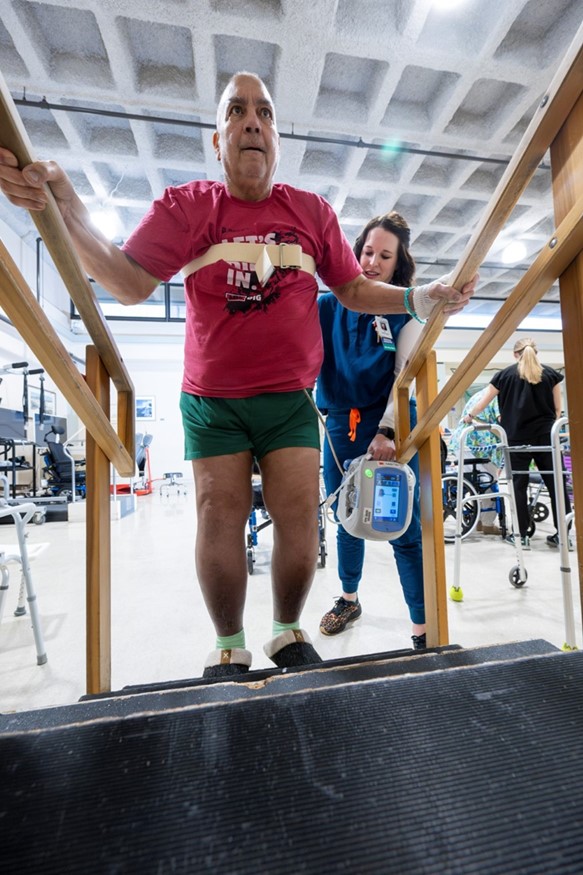Rehabilitation After a Stroke
Stroke rehabilitation begins in the hospital as soon as the patient’s overall condition is stabilized, often within 24 to 48 hours after a stroke. The Knapp Rehabilitation Center is a leader in inpatient rehabilitative recovery for strokes.
Hennepin Healthcare excels in all aspects of rehabilitation and the expert care our rehabilitation offers following a stroke is no exception. Rehabilitation helps those who have suffered a stroke relearn skills that are lost when part of the brain is damaged. It also teaches new skills to accommodate any that were lost or need to adapt. The goal of a rehabilitation plan is to integrate the patient back into the community. Providers from many different areas and specialties make up our care teams. The severity of damage varies from person to person.
On an inpatient and/or outpatient basis a stroke patient may need:

Physical Therapy
Physical therapy following a stroke may consist of:
- restoring physical functioning and skills like walking
- treating loss of movement in stroke-impaired limbs
- improving strength and coordination
- assessing wheelchair needs including fitting and training
- operating assistive devices (walking aides or other equipment if needed)
Occupational Therapy
Occupational therapy can help with:
- daily living skills such as eating, personal hygiene, dressing, preparing meals, driving
- adaptive equipment usage – for example, to help with dressing or using bathroom equipment
- assessment and modification of an environment to improve safety and independence
- cognitive skills including memory, problem solving, safety and judgment
- motor skills such as strength and coordination
Speech-Language Pathology
Speech-language pathology may help patients with:
- aphasia (a communication disorder that impairs a person’s ability to use and comprehend language)
- dysarthria (difficulty pronouncing words due to muscle weakness)
- dysphagia (difficulty swallowing)
- comprehension of language, verbal or non-verbal communication, reading, writing
- augmentative communication (low tech or high tech communication options)
Neurovision Rehabilitation
- therapies can improve eye tracking and eye teaming ability following a stroke if there is injury to the visual centers of the brain
Neuropsycology
Neuropsychology may be needed to:
- evaluate and develop a treatment plan for cognitive problems related to thinking, memory, concentration and sequencing

